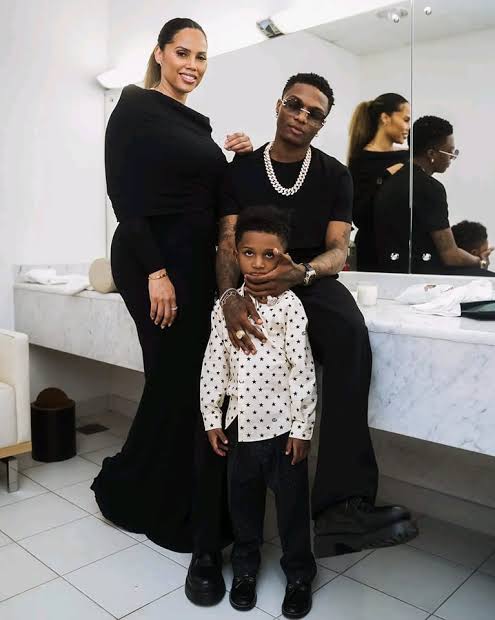
“Do I Look Like a Fool?” – Chef Imoteda Blasts Abuja Brand Over Size Assumptions in Online Shopping Drama

Popular Nigerian chef and TV personality, Imoteda, known on X (formerly Twitter) as @imoteda, has sparked a wave of online reactions after publicly calling out an Abuja-based fashion brand for what she described as an insulting and careless assumption. In a post that quickly gained traction, she revealed how the brand decided on their own not to include an item she ordered simply because they assumed it wouldn’t fit her size. What was meant to be a routine order turned into an embarrassing and frustrating encounter that has once again ignited conversations about customer service, bias, and body-shaming in Nigeria’s fashion industry.
According to her tweet, the chef had ordered multiple items from a brand located in Abuja, only to be surprised when she received a call from them after the order had already been dispatched. The brand reportedly informed her that they had deliberately omitted one of the items because, in their view, it wouldn’t be her size. She expressed her disbelief at the audacity of such an assumption, writing, “Me that I ordered it for my daughter, am I a fool? You think I can’t read?”
The tweet immediately caught fire across social media platforms, with many Nigerians chiming in to share similar experiences of being judged or dismissed by online vendors who often make decisions based on their customers’ perceived appearance or body size. For some, the incident was another example of how unprofessionalism and bias continue to plague Nigeria’s online retail space, where assumptions often replace communication and proper service.
Many netizens expressed outrage on her behalf, arguing that the brand’s action was not only presumptuous but deeply disrespectful. “That’s not even about size, that’s about common sense,” one user commented. “If a customer places an order and pays, your job is to deliver exactly what they requested — not to start guessing who it’s for or what size they need.” Another wrote, “The lack of professionalism in Nigerian businesses is exhausting. Why assume when you can ask?”
Others, however, attempted to defend the brand’s possible intentions, suggesting that they might have been trying to save her the disappointment of receiving an item that wouldn’t fit. But this line of defense did little to calm the outrage, as most people agreed that even if the seller had good intentions, the approach was entirely wrong. “It’s one thing to care, it’s another to be condescending,” a commenter wrote. “You don’t get to decide what a customer needs, especially when you don’t even know who the item is for.”
The issue also reignited debates about how Nigerian businesses handle customer relations. Many users shared stories of online vendors who frequently act without clarification or display poor communication skills when dealing with buyers. For some, it was not just about size or fashion—it reflected a wider problem of disregard for customers’ autonomy and professionalism in the business environment.
What made the situation more striking was that Chef Imoteda, who is widely respected in Nigeria’s culinary and entertainment circles, is not just an ordinary shopper. She is a public figure with a substantial following, known for her elegance and poise. The incident, therefore, came off as especially ironic: if a well-known professional like her could be treated dismissively by a business that likely values visibility and reputation, what hope is there for the average customer?
Several social media users also noted the gender undertones in the encounter. Some women argued that such assumptions about body size are often rooted in societal stereotypes and judgments about women’s bodies. “It’s the audacity for me,” one user tweeted. “They assumed her size and then thought it was okay to make a decision on her behalf. That’s the kind of bias women deal with every day, even in business transactions.”
Others turned the incident into humor, as Nigerians often do when faced with absurdity. Memes and jokes flooded the replies, with some users teasingly asking the chef if the vendor thought they were her personal stylist or wardrobe guardian. Still, beneath the humor lay an unmistakable frustration shared by many who have experienced similar treatment from online sellers—unasked-for advice, unsolicited opinions, and unnecessary assumptions.
By Thursday morning, the tweet had already been viewed thousands of times, and conversations were spreading beyond X to Instagram and TikTok, with several content creators weighing in. A few business coaches even used the incident as a teaching moment, advising entrepreneurs on how not to lose customers through poor communication and arrogance. “The customer is not your friend,” one small business consultant said in a video response. “Even if you have good intentions, always confirm before making decisions that affect their order. Respect their autonomy.”
The brand in question, whose name was not disclosed in the tweet, has reportedly not made any public comment or apology regarding the matter. However, social media users have continued to debate what would have been the appropriate response. Many felt that a simple message confirming the size concern or seeking clarification from the buyer would have avoided the entire fiasco. Instead, by taking unilateral action, the brand not only lost a customer but also damaged its reputation among potential clients who value respect and professionalism.
The story has also revived a broader conversation about how brands perceive and treat women’s bodies. Some women online recalled instances where sellers refused to provide certain clothing sizes, mocked their measurements, or acted surprised when they requested particular styles. Others noted that fat-shaming or size-shaming has been subtly normalized in parts of Nigeria’s fashion industry, often disguised as “advice” or “concern.”
For Chef Imoteda, the experience seemed less about the missing item and more about the principle. Her tone, though witty and sarcastic, carried the weight of someone tired of being underestimated or patronized. The simple question at the heart of her tweet—“You think I can’t read?”—echoed with irony, as it exposed how often businesses underestimate the intelligence and awareness of their customers. It wasn’t just about clothes; it was about respect.
The incident serves as a reminder to Nigerian businesses, especially those operating online, that professionalism is not optional. In a market driven by customer satisfaction and social media visibility, a single misjudgment can quickly spiral into a public relations nightmare. Consumers today are vocal, empowered, and unafraid to call out poor service, and as this case shows, even a small mistake can become a viral talking point within hours.
In the end, the saga has left many Nigerians reflecting on how fragile customer trust can be. The fashion brand’s misstep may have been avoidable, but its impact speaks volumes about the need for better business ethics, communication, and sensitivity in customer relations. As for Imoteda, she has handled the situation with her usual calm wit, but her experience has become yet another example of why Nigerian businesses must learn that good intentions are meaningless without good manners.
One thing is certain—after this, more customers will think twice before ordering from a brand that assumes instead of asking. And as social media continues to hold businesses accountable in real time, perhaps the next Abuja vendor will remember: a simple message can save a reputation, but an assumption can ruin one.


